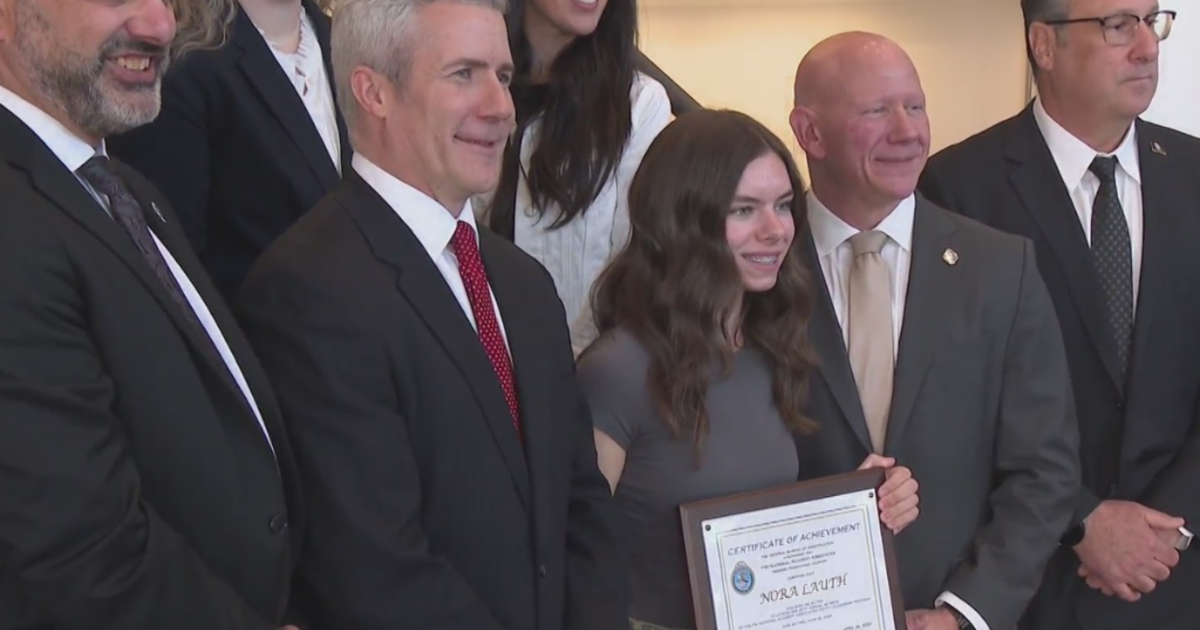Pittsburgh Hospitals Put Protocols, Safety Measures In Place To Protect Patients' Embryos
Follow KDKA-TV: Facebook | Twitter
PITTSBURGH (KDKA) -- After years of fertility treatments, Lauren Jinar and her husband finally have their miracle baby. Most of their embryos didn't make it. One became their son, Grayson. Another, the last remaining one, is frozen.
"I was just thankful to have that one with everything that we tried," says Lauren.
What could happen weighs on her mind.
"What if something happens? What if their power goes out? What if their generator goes out? What if they accidentally implant mine in somebody else's?" she wonders.
Eggs, sperm, and embryos -- which are eggs fertilized with sperm -- can be kept in storage indefinitely.
"There is no expiration on the freezing of the eggs or embryos," says AHN reproductive endocrinologist Dr. Lori Homa.
Women can freeze their eggs for use later in life, but an increasing need is for young women with cancer about to get chemotherapy. These medicines can be toxic to their eggs.
"We can freeze their eggs ahead of time so that in the future, they can have their own biological children potentially," Dr. Homa continues.
- RELATED STORY: Hopes & Dreams Shattered: 3 Pittsburgh-Area Cancer Survivors Among Those Who Lost Frozen Eggs, Embryos In Fertility Clinic Malfunction
The procedure to freeze these tissues is a fine tuned process.
First a woman undergoes hormone injections to produce mature eggs. The doctor retrieves the eggs with a needle, and an embryologist isolates them from the surrounding fluid.
If they are to be frozen, they are treated with protective solutions, and placed in a tank freezer.
If they are to be made into embryos, they are brought to work stations to be fertilized with sperm.
Once the egg is fertilized, the embryo grows in a incubator for five days. In that time, it becomes a ball of cells called a blastocyst. The blastocyst can then be transferred into a uterus, or treated and frozen.
"Once we have them all treated, we put them in a little straw, put them in a goblet, put them on a cane and they go into the storage tank," says Jen Hamilton, the lab manager at Reproductive Health Specialists.
The frozen embryos are kept in tanks of liquid nitrogen at -196 degrees Celsius. That's -320 degrees Fahrenheit.
All along the way there are monitoring systems and alarms.
"Embryos are very sensitive to temperature changes," says AHN reproductive endocrinologist Dr. Fabiola Balmir.
"So you can see the red line is functioning exactly 37," points out Hamilton.
Certain temperatures will trigger the alarms: for instance, 40 degrees for the incubators, -5 degrees for the liquid nitrogen tanks. Once triggered, phone alerts go out to lab staff.
"As soon as we get that alarm, we come in and we address it right away," says Hamilton.
Should an alarm go off, there is time. It would take a storage tank two weeks to completely lose its liquid nitrogen.
"At -5, they're still frozen, so we have time to catch the situation," Hamilton says.
"It's a good window," says Dr. Balmir, "but you should be able to get there that same day."
If there is a leak, it should be noticed during the manual checks of the temperature and the manual fillings of the tanks.
"They go in at least, the very minimum, two times a week," says Hamilton, "and measure the amount of liquid nitrogen in that tank."
In addition, there is generator back up, so power outages wouldn't be an issue. Inventory is kept in an electronic medical record, on paper, and on a computer spreadsheet.
While each lab is free to purchase whatever tank system and monitoring set up it chooses, there is an accrediting organization, for example, the American College of Pathologists.
"Our requirements are to make sure the tanks are monitored 24 hours a day, that you're checking your levels," Hamilton elaborates.
After the difficult process of having a baby through in vitro fertilization, Lauren can't imagine losing her frozen embryo, which she hopes to become pregnant with later this year.
"It's a very physical and emotional process to go through. It's hard," she admits, "I would be devastated. There is just nothing that could make up for that."



